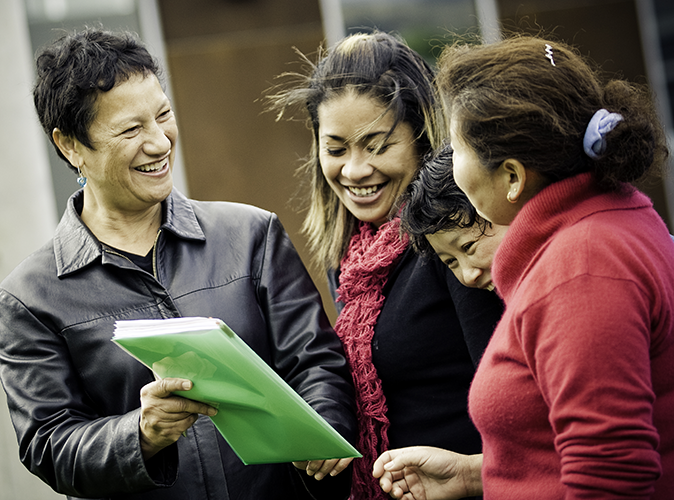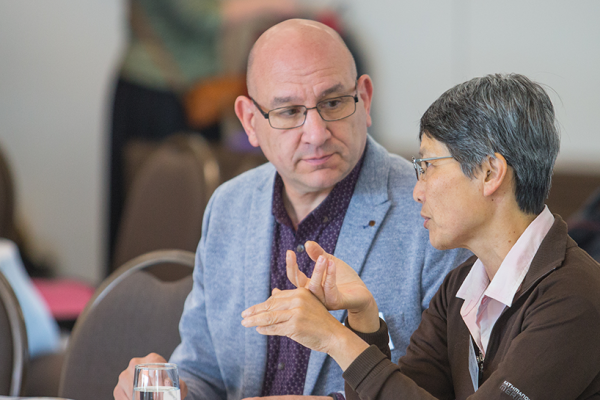AI, culture, and inclusion — A guide for educators
This page supports educators in using AI in ways that are culturally sustaining, inclusive, and grounded in Aotearoa values.
 This is guide 4 in a 6-part series from Ako Aotearoa, designed to help educators explore AI in education — safely, ethically, and in ways that reflect our values in Aotearoa New Zealand.
This is guide 4 in a 6-part series from Ako Aotearoa, designed to help educators explore AI in education — safely, ethically, and in ways that reflect our values in Aotearoa New Zealand.
Each guide offers practical steps, real examples, and reflective tools to support your journey. Whether you’re just starting or deepening your practice, these resources are here to support your next steps — practically and purposefully.
Embedding AI use that reflects Te Tiriti, upholds equity, and honours diverse voices.
Why cultural grounding matters in AI
Te Tiriti o Waitangi and AI
Te Tiriti shapes our responsibilities in education — to uphold Māori rights, value Māori knowledge, and ensure equitable outcomes. AI, like any educational tool, must be used in ways that align with these obligations.
Risks Without Cultural Grounding
- Māori and Pacific perspectives may be absent or misrepresented in AI outputs
- AI tools are often trained on biased, non-local data
- Cultural identity, language, and nuance can be flattened or erased
A Call to Educators
Embedding AI in culturally sustaining ways is not just about tools — it’s about relationships, representation, and responsibility.
|
Key Principle: AI use in Aotearoa should never undermine mana. It should lift it. |
Principles for culturally inclusive AI use
Drawn from research and kōrero with Māori and Pacific leaders, here are five guiding principles:
|
Principle |
What it means in practice |
|
Whanaungatanga |
Build relationships before deploying new tools |
|
Whakamanatanga |
AI should affirm identity, not erase it |
|
Manaakitanga |
Ensure care in how AI treats language, story, and voice |
|
Māramatanga |
Critically examine AI origins, outputs, and biases |
|
Rangatiratanga |
Learners should have agency in how and when AI is used |
|
Reflective Prompt:
|
Practical moves you can make
What you can do — Even as a non-expert
- Check for cultural content: Ask AI tools about Aotearoa histories, tikanga, or te reo and evaluate critically.
- Use AI with learners as a starting point — not an authority.
- Let learners critique AI outputs for cultural accuracy.
- Create prompts that explicitly invite te ao Māori or Pacific perspectives.
- Scaffold responsible use: AI is a tool, not a truth machine.
|
Example Prompt:
|
Example Task:
Ask learners to compare a mainstream AI-generated definition of 'whanaungatanga' with lived definitions gathered from their whānau or community.
|
Educator Tip: You don’t need to be an expert in AI or culture — just be open, guided, and prepared to learn alongside your learners. |
Printable Resource References
- Taiuru, K. (2023). Māori Data Sovereignty. https://www.taiuru.maori.nz/maori-data-sovereignty/
- Culture and Design Lab. (2024). Pasifika Data Sovereignty. https://cultureanddesignlab.com/blog/article-435953
- Taiuru, K. (2023). Te Tiriti Based Artificial Intelligence Ethical Principles. https://www.taiuru.co.nz/ai-principles/
- Brown, P. T., et al. (2024). Māori Algorithmic Sovereignty. https://datascience.codata.org/articles/10.5334/dsj-2024-015
- University of Auckland. (2024). Te Reo and Artificial Intelligence. https://www.auckland.ac.nz/en/news/2024/03/18/te-reo-artificial-intelligence.html
- Ako Aotearoa. (n.d.). Māori cultural capabilities pathway. https://ako.ac.nz/te-pataka-matauranga-maori/maori-cultural-capabilities-pathway
- Smith, G. (2023). Te Ao Māori AI in Education. https://thisisgraeme.me/2023/10/31/te-ao-maori-ai-in-education/
- Lewis, J., Arista, N., Arimoto, A., et al. (2020). Indigenous Protocol and AI. https://spectrum.library.concordia.ca/id/eprint/986506/7/Indigenous_Protocol_and_AI_2020.pdf
- Julien, G. (2024). How Artificial Intelligence (AI) impacts inclusive education. Educational Research and Reviews, 19(6), 95–103. https://academicjournals.org/journal/ERR/article-full-text-pdf/A59EF5172309
- Culture and Design Lab. (2023). NZ Public Service AI Framework.https://cultureanddesignlab.com/blog/article-593959
- Moana Connect. (2024). Moana Talks – Pacific AI. https://www.youtube.com/watch?v=sF14JF8n3OA
Try this with AIHOA
“How can I explain Māori data sovereignty to my learners?” “What are ways to challenge bias in AI tools during class?”
Chat with AIHOA – Opens in ChatGPT AIHOA runs on ChatGPT by OpenAI. A free ChatGPT account is required. You can create one when you first open the chat. Free accounts include a limited number of interactions per day. Subscriptions offer extended access. |
Where to next?
Key ideas – Ethics, data privacy and algorithmic bias | Go back to Practical tips

